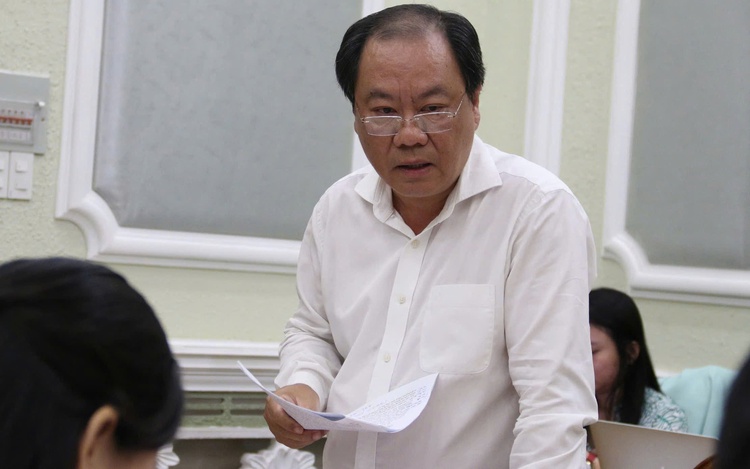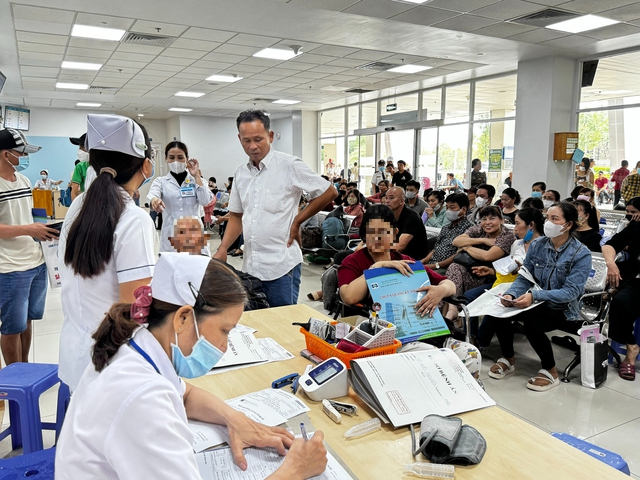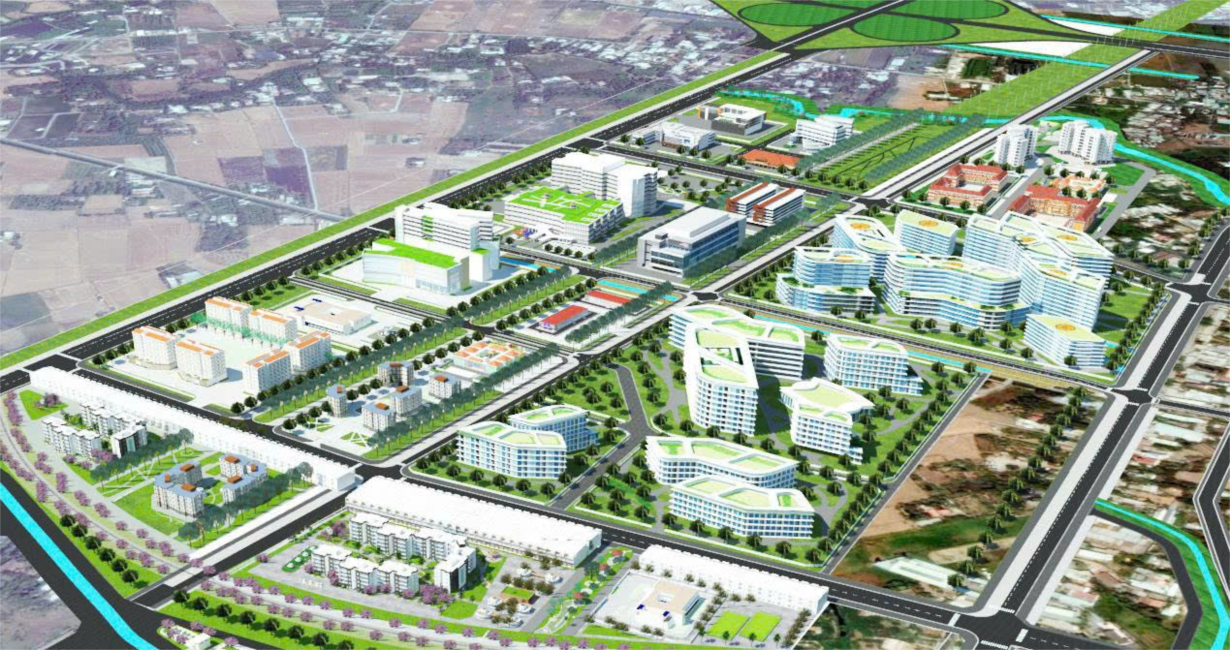
Nguyen Hoai Nam, deputy director of the Ho Chi Minh City Health Department, speaks at a meeting with city officials, April 15, 2025. Photo: Bui Nhi
The cultural and social affairs division of the municipal People’s Council on Tuesday conducted a supervisory session with the local Department of Health on workforce quality and public investment efficiency in the health sector.
High workloads, low pay
According to the department's report, 642 public health workers resigned in 2024, including 286 doctors and 259 nurses, midwives, technicians, marking a 28.5-percent drop from 2023, which had seen 898 resignations.
Despite the decrease, concerns remain as many who left were highly experienced, while most new hires are new graduates needing time to train.
Low income, high stress, and better private sector opportunities were cited as primary reasons for the resignations.
Nguyen Hoai Nam, deputy director of the health department, said public health facilities fall short of the national staffing target, with only 1.86 nurses/midwives per doctor, below the 2.5 standard.
Nurse shortages are particularly severe due to high workloads and lack of recruitment incentives.
To address the issue, the city’s health department proposed that the central government raise hazard pay for staff in toxic or high-risk environments and offer seniority bonuses to hard-to-fill clinical roles such as nurses and midwives.
The department also urged the Ministry of Health to add mid- and low-level roles like nursing assistants and dental aides to ease the burden on core staff.

Residents seek medical care at a Ho Chi Minh City healthcare facility. Photo: Thu Hien / Tuoi Tre
Urgent need for medical equipment
Nam added that the city’s 2021-25 mid-term public investment plan includes 35 healthcare projects totaling over VND13 trillion (US$503 million).
Regarding the demand for medical equipment, Nam highlighted the negative impact of equipment shortages and aging infrastructure at overcrowded public hospitals on health treatment and check-ups.
Several healthcare facilities came up with plans to establish public-private partnerships in medical equipment investment to address the issue.
As of 2018, 109 equipment-sharing projects worth VND1.1 trillion ($43 million) helped fill the gap, with VND997 billion ($38.5 million) from private partners.
These partnerships allowed quick access to modern equipment while remaining eligible for health insurance coverage, alleviating pressure on state budgets.
But since 2018, legal uncertainty has stalled new public-private partnerships.
Lack of official guidance on revenue-sharing, leasing models, and financial accountability has deterred further implementation.
Subsequently, the health department encouraged hospitals to seek soft loans rather than rely on investor-supplied devices, to avoid extra costs for patients and limit unnecessary service use.
The department also called for a complete and stable legal framework on healthcare investment, land leasing, and public-private partnerships to encourage more private capital.
In response, Cao Thanh Binh, head of the cultural and social affairs division, acknowledged the department’s proposals and emphasized the need to classify projects by scale and urgency to better mobilize investors.
He highlighted the growing trend of foreign and domestic visitors seeking medical services in Ho Chi Minh City, urging the health sector to capitalize on this healthcare tourism potential as part of its strategic development.




Max: 1500 characters
There are no comments yet. Be the first to comment.